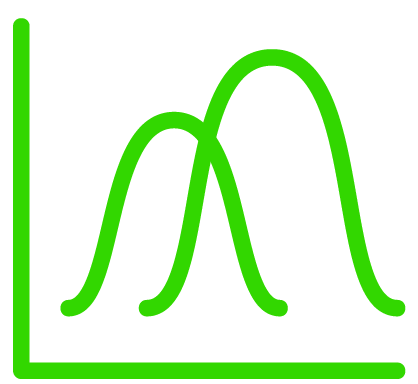
It was a mixed start to the year in H1 2022. There were relatively few UK bids announced in early 2022, and the escalation of hostilities in Ukraine subsequently further depressed bid activity. There was, however, an uptick in bid activity in May and June 2022.
The leveraged finance market appears to be materially tighter in 2022 than it was in recent years. In 2022, there has also been a material increase in the number of bids offering shares as consideration – this is also consistent with increasingly less liquid leveraged financing markets.
Financial sponsor bid activity, although still prevalent, represented a materially smaller proportion of the total number of bids in H1 2022 compared to 2021. In 2021, financial sponsors accounted about two thirds of announced bids, while in H1 2022 , financial sponsors accounted for about a third. There are a number of possible reasons for this, including elevated inflation, rising interest rates and tightening of the leveraged finance market.
There remains a steady flow of interest from non-UK bidders, who accounted for about two thirds of announced UK bids by value.
The regulatory outlook for bidders in UK bids is however increasingly difficult.
Worldwide, competition regulators – including the CMA, the UK competition regulator – are becoming increasingly interventionist in M&A. Bidders should assume that bids will be increasingly scrutinized by competition regulators and that there will be more deals subject to merger review, more phase two or second requests by competition regulators, more deals blocked by competition regulators, more disposal remedies required by competition regulators and generally more unpredictability of competition outcome. We discuss this in further detail in our second article of this series.
In addition, a number of jurisdictions have recently implemented or enhanced national security regimes, and in particular the UK has now adopted its new National Security Act. The new UK National Security Act seems, at least so far, to be operating relatively efficiently, contrary to fears expressed by many commentators in the lead up to the introduction of the Act.
However, it is still early days for the new National Security regime, and it remains to be seen whether it will succumb to political pressure. One interesting recent test case for the new UK regime related to acquisitions made by Patrick Drahi in BT Group. Patrick Drahi is a French telecoms entrepreneur and investor and BT Group is the largest provider of fixed-line, broadband and mobile services in the UK. Following press reports suggesting that Drahi may be looking at job and R&D cuts for BT and interventions by trade unions, in May 2022, the UK government announced its decision to call-in for review under the new National Security Act the increase of Drahi’s shareholding in BT Group from 12.1% to 18%. There did not appear to be obvious substantive national security concerns, so this call-in came as somewhat of a surprise to the market. Ultimately, the government did however clear this acquisition.


The leveraged finance market appears to be materially tighter in 2022 than it was in recent years. In 2022, there has also been a material increase in the number of bids offering shares as consideration – this is also consistent with increasingly less liquid leveraged financing markets.
Financial sponsor bid activity, although still prevalent, represented a materially smaller proportion of the total number of bids in H1 2022 compared to 2021. In 2021, financial sponsors accounted about two thirds of announced bids, while in H1 2022 , financial sponsors accounted for about a third. There are a number of possible reasons for this, including elevated inflation, rising interest rates and tightening of the leveraged finance market.
There remains a steady flow of interest from non-UK bidders, who accounted for about two thirds of announced UK bids by value.
The regulatory outlook for bidders in UK bids is however increasingly difficult.

Worldwide, competition regulators – including the CMA, the UK competition regulator – are becoming increasingly interventionist in M&A. Bidders should assume that bids will be increasingly scrutinized by competition regulators and that there will be more deals subject to merger review, more phase two or second requests by competition regulators, more deals blocked by competition regulators, more disposal remedies required by competition regulators and generally more unpredictability of competition outcome. We discuss this in further detail in our second article of this series.
In addition, a number of jurisdictions have recently implemented or enhanced national security regimes, and in particular the UK has now adopted its new National Security Act. The new UK National Security Act seems, at least so far, to be operating relatively efficiently, contrary to fears expressed by many commentators in the lead up to the introduction of the Act.
However, it is still early days for the new National Security regime, and it remains to be seen whether it will succumb to political pressure. One interesting recent test case for the new UK regime related to acquisitions made by Patrick Drahi in BT Group. Patrick Drahi is a French telecoms entrepreneur and investor and BT Group is the largest provider of fixed-line, broadband and mobile services in the UK. Following press reports suggesting that Drahi may be looking at job and R&D cuts for BT and interventions by trade unions, in May 2022, the UK government announced its decision to call-in for review under the new National Security Act the increase of Drahi’s shareholding in BT Group from 12.1% to 18%. There did not appear to be obvious substantive national security concerns, so this call-in came as somewhat of a surprise to the market. Ultimately, the government did however clear this acquisition.
Overall, the market outlook remains mixed. While there remain numerous headwinds which we have mentioned above, we believe there could be steady UK bid activity over the coming year or so. This is for various reasons including:

The significant falls in the pound sterling against the U.S. dollar and other currencies in the year to date. In the 6-month period ended 30 June 2022, the pound sterling fell by more than 10% against the U.S. dollar. This is likely to make the acquisition of UK public companies more attractive to U.S. and other bidders.

The UK stock market remains cheap on a relative basis. By some estimates, UK equities trade at an approximately 40% discount to non-UK equities (on a PE basis), and the FTSE 100 and the FTSE 250 each trade at a PE of around 10.

Financial sponsors remain relatively active in the UK bid market and continue to hold significant amounts of dry powder.

The balance sheets of many UK public companies remain relatively robust – at least for the moment.

The higher prevalence of value type stocks in the UK indices, which typically find favor in an inflationary environment.
Sam Bagot
Partner
London
T: +44 20 7614 2232
sbagot@cgsh.com
V-Card

Tihir Sarkar
Partner
London
T: +44 20 7614 2205
tsarkar@cgsh.com
V-Card
Dan Tierney
Associate



